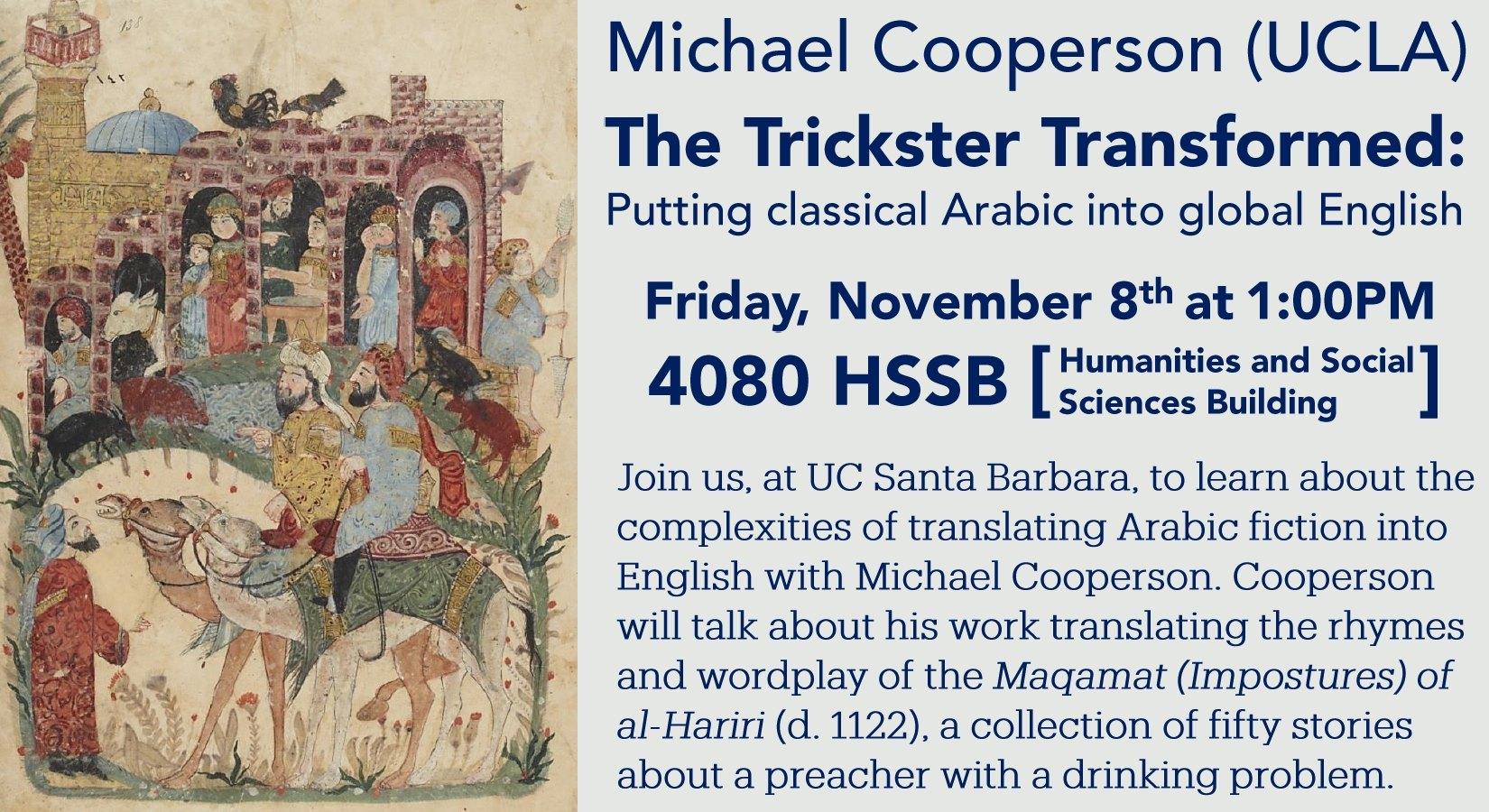
<p>HSSB 4080</p>
Michael Cooperson is professor of Arabic at the University of California, Los Angeles, where he teaches pre-modern Arabic literature as well as courses on translation from Arabic to English. He also supervises the UCLA Subtitle Project, which trains students to produce English captions for culturally significant Arabic-language videos. He is the translator of Ibn al-Jawzī's Virtues of the Imam Ahmad ibn Hanbal (2013), which received the Sheikh Hamad Prize for Translation and International Understanding, and has been reissued as The Life of Ibn Hanbal (2017). His research interests include early Abbasid cultural history and Maltese language and culture. The most popular work of fiction in Arabic is, or was, the Maqamat (Impostures) of al-Hariri (d. 1122), a collection of fifty stories about a preacher with a drinking problem. It has resisted translation, mostly because it is written in rhyme and full of wordplay. My just-finished attempt to put it into English follows the example of al-Harizi (d. 1225) and Friedrich Rückert (d. 1866), whose Hebrew and German renditions replicate the word games or find equivalents for them. For the rhymed prose, which (I argue) doesn’t work in English, I substitute a stylistic constraint, on the model of Raymond Queneau’s Exercices De Style (1947). Some stories are recast in the style of particular authors (Kempe, Chaucer, Behn, Dickens, Twain, etc.), others in present-day jargons (corporate-speak, New Age, UCLA slang, etc.), and others again in historical and global varieties of English (nineteenth-century thieves’ cant, Harlem Jive, Singlish, etc.). This approach invites questions about the theory and practice of translation, including the ethics of collaboration and the matter of cultural appropriation.